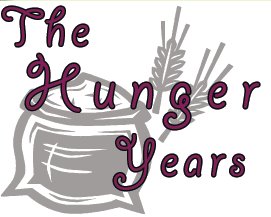It seemed like kismet when I walked into Silver Diner, a small, old-fashioned diner/chain based in Virginia and Maryland, and found the establishment polling its customers, but not in the way you might expect.
For the month of October, the diner offers Obamalettes (a Chicago pizza-style dish) and McCainlettes (a BBQ chicken dish inspired by the senator's home state). As customers order one or the other, tallies are counted and on Oct. 30, Silver Diner will post the results and predict a presidential winner. Who's winning? Well, it seems that pizza for breakfast (or do you think people are actually swayed by their political bent?) is too great a pull. Obama is leading with 1026 votes (orders) to McCain's 485. While this experiment did make me laugh, what made me connect it with kismet?
Well, I posted this New York Times article in our Food in the News box a few days ago. I didn't get up the interest to write about what should be the connection between food and politics right away. It seems it is more of an interesting topic than I first considered and it took a political omelette to remind me of that.
Okay, first off let me say that food has a much biger impact on our everyday lives than we are usually willing to acknowledge. It not only affects our wallets and our health, the abudance of food keeps us from needing to start wars with other nations, keeps us from turning on our neighbors, even keeps us from going hungry to feed our children (or watching them starve cause we have no food at all to give them). But as Americans, except for those who are poor and unable to acquire food, we have chosen to forget those times in our evolution as a nation that are comparable to many countries in present-day Africa.
As the New York Times article, published in a recent issue of The Sunday Magazine and phrased like a letter to the coming president, states, "Food policy is not something American presidents have had to give much thought to, at least since the Nixon administration..."
It seems that we've forgotten the connection between food and every other aspect of our lives in America. Michael Pollan lists some of these connections in his 'letter':
-Mass food consumption has led to industrialized food production which has increased the impact on our environment (through releasing carbon as we creat new crop fields, using gas in our farm equipment, and killing the land with overuse). As Pollan states, "When we eat from the industrial-food system, we are eating oil and spewing greenhouse gases."
- The way we live in America, with such easy and cheap access to all the foods that are bad for us (I say this as I eat a donut generously brought in by a fellow coworker), has contributed to our generally low health. Most of our top diseases are actually related to what we eat. As Pollan states: "You cannot expect to reform the health care system...without confronting the public-health catastrophe that is the modern American diet."
- America, because we have placed such value in helping others (generally a good thing) and because we have perfected the mass production of food, has become key to the survival of many nations. As we scramble for our own food, we are less and less able (or willing) to give to other nations. How many riots do you think we have set off when we have taken away food aid? How come we didn't help these areas grow their own food, instead of letting them rely on a finite source that so many others rely on? We will soon see how much more valuable food is than previous 'allies' are. "Expect to hear the phrases 'food sovereignty' and 'food security' on the lips of every foreign leader you meet," predicts Pollan.
Pollan raises many more interesting points after offering a look at how we got where we are now. The article is definitely long, but it is worth a read and some meditation on the points he brings up. These are issues we will be facing in the near future.
As Pollan warns the next president of the United States: "What this means is that you, like so many other leaders through history, will find yourself confronting the fact — so easy to overlook these past few years — that the health of a nation’s food system is a critical issue of national security. Food is about to demand your attention."
Whether Obamalette or McCainlette wins, it will be up to the American people to actually address this growing issue. What options do we have to solve this coming crisis? What are we doing wrong right now that could be changed to promote good food policy? This is what we need to ask ourselves, and our leaders, no matter which omelette wins on Election Day.
Are pesticides racist?
5 years ago



